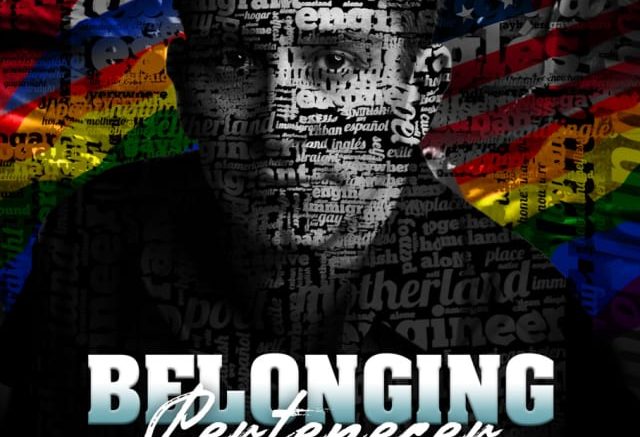Katerina Rodriguez/Staff Writer
Love is held by the intersectionality of human bonding. That bond is what holds the key to loving one another around the world. This is because “love is thicker than any country,” said Richard Blanco.
Acclaimed poet, author and public speaker Richard Blanco spoke with Emory University and Florida International University students on Zoom.
The talk was organized by FIU’s Department of English and Education and Emory University’s Stuart A. Rose Library and Department of Spanish and Portuguese.
Blanco, along with the Director of Graduate Studies at Emory, Karen Stolley, conducted a three part interview titled “Belonging: Sexuality, Language and Humanities.”
Born to Cuban parents in Madrid, Blanco was raised in Miami where he attended FIU and graduated with a double major in civil engineering and creative writing.
Blaco is best known for being the first Latin and openly gay poet chosen to read at a presidential inauguration. In 2013, for President Obama’s second term inauguration, Blanco read “One Today,” which spoke to an America that can represent all people.
For “Sexuality,” Blanco and Stolley uncover the meaning of “belonging to someone.” Speaking on exile, identity, belonging and home, Blanco opened with a Spanish saying.
“La lucha continua,” he said to start the poem, translating to “The fight continues.”
The saying references the fight that the LGBTQ+ community continues to face, especially noted several decades after the Stonewall riots in 1969.
Blanco reminisced on the infamous Orlando Pulse nightclub shooting in June 2016, and how it inspired his poem “One Pulse One Poem,” which discusses how poetry is written and spoken genuinely in times of tragedy.
For many in the LGBTQ+ community, part of discovering who you are comes from cultural sexuality and the idea that the family one inherits is different than the family one has chosen.
For Blanco, the most important lesson taught to the men in a Cuban household was “it is better to be queer but not act it, than to not be queer but act it,” he said. This also stems from the Latinx notion of “machismo,” which lays down the expectation for how men should act. He further explores this in reading his poem, “Queer Theory by My Grandmother.”
In part two, “Language,” the idea of belonging to somewhere, Blanco and Stolley, an Emory professor of Spanish, discussed the spaces that humans inhabit and the interconnection between beings to feel whole. Specifically, Blanco referenced the power his bilingualism offered him while growing up with two distinct ways to communicate.
“Communication is a way of seeing life and breathing in the world,” he said. With a background in both Spanish and English, Blanco decided to use his gift to see the world in two different ways.
After reading his poem “The Name I Wanted,” Blanco explained that when writing your own narrative, it’s important to remember that identity is something we claim, not something that gets put onto us.
“Nothing is always as it seems,” Blanco said. “Writing led me to come out in a way, allowing me to investigate things I may not have done otherwise.”
The final part of the interview, “Humanities,” discussed the idea of belonging to something. Blanco further articulates what this entails, specifically “practice” in everyday lives.
Blanco admits that the hardest part of writing the inaugural poem was writing something genuine. A question he admits that came to him while writing was whether or not the country he loves even loved him back.
The poem “One Today” ended up being the response to that question.
Democracy is a work in progress and he felt like so many others were asking themselves the same question in private and public, feeling as if their narratives were not welcomed in the U.S.’s history.
As a result, he ultimately decided to write a narrative that has always been there, one that includes that question.
The third part of the talk ended with Blanco’s reading of his poem “Declaration of Interdependence,” which is a rewrite of an important piece of U.S. legislature, to include all narratives.
In a Q&A at the end of his interview, Blanco was asked several questions regarding how he found safe spaces when he felt exiled in his own culture.
He talked about the importance of reaching out to friends and resources meant to help and especially discussed the “importance of getting intimate with your own story because there are many dimensions as to who we are and what is going on in our lives, and that is all apart of creating our own narrative.”




Be the first to comment on "Acclaimed Poet Richard Blanco Discusses Belonging in Sexuality and Language"